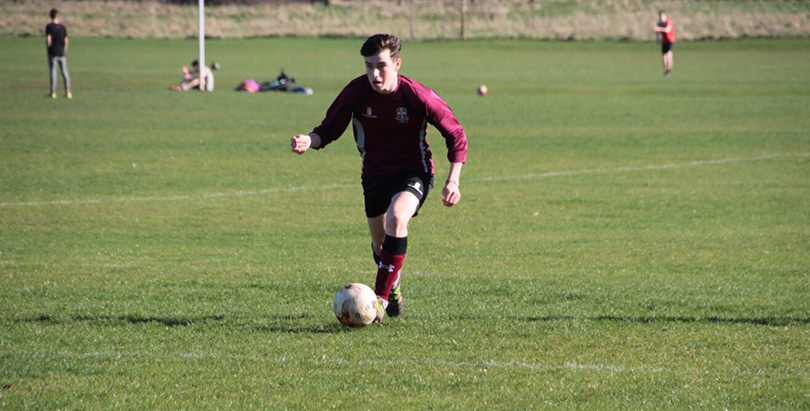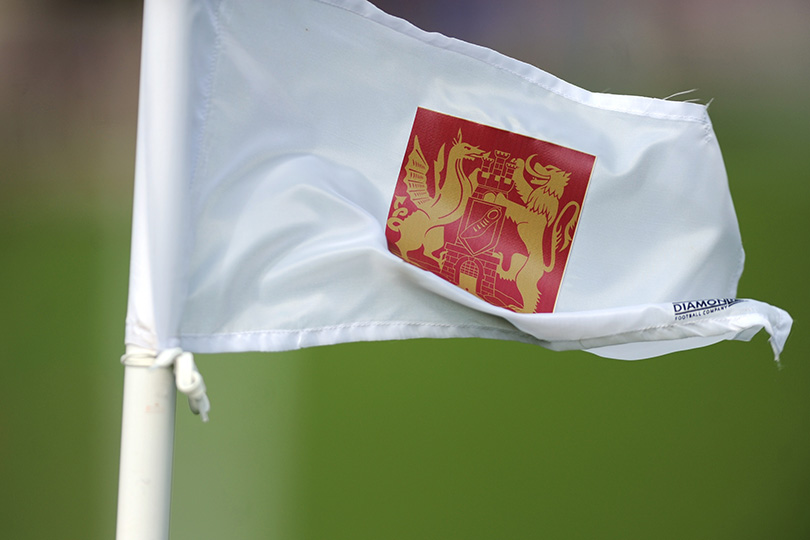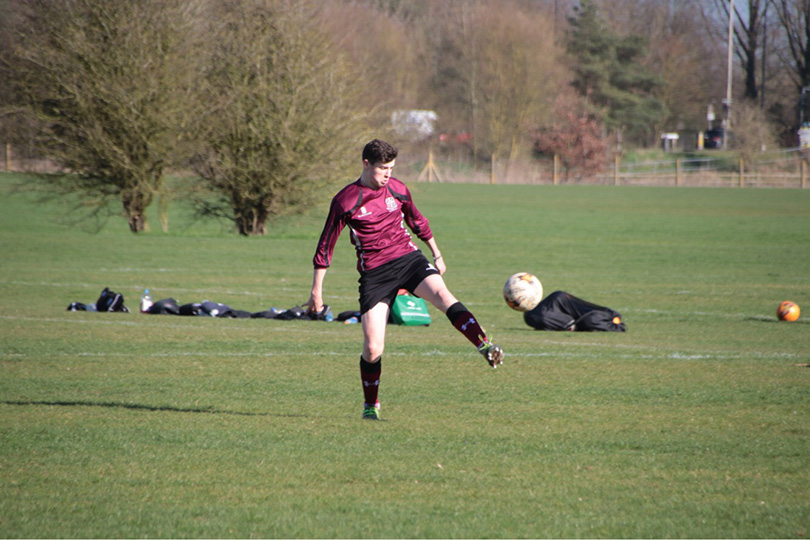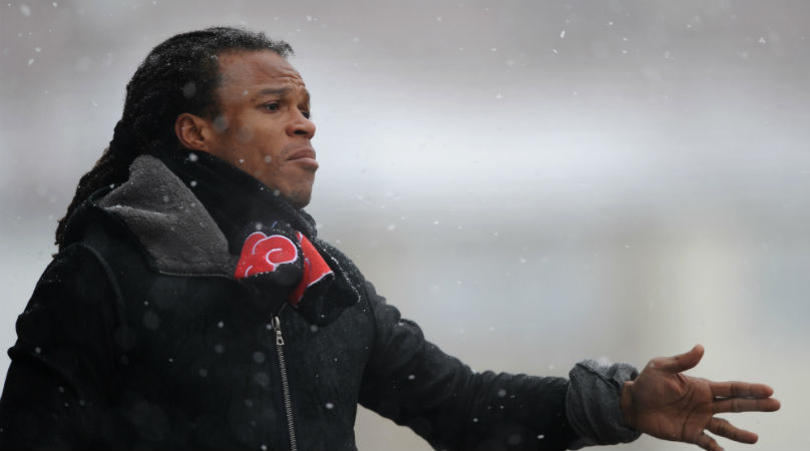What’s it like to be on a football scholarship in the USA?
Sunny Colorado seems like a attractive escape for would-be students cast aside by English academies, but is the reality all that rosy? Billy Munday finds out

The mountainous surroundings of Colorado State University’s Pueblo campus are far from the bland, structured streets of Milton Keynes.
Harvey Thorne is a long way from home, but a soccer scholarship has given the 18-year-old an opportunity to study in the United States while continuing his footballing career. These days, an increasing number of British players are choosing to do the same.
Many of those making their moves across the pond have fallen foul of the brutally selective academy system in Britain, whereby thousands of youngsters are released each year by professional football clubs and often give the game up completely as a result.
And that's where Soccer Assist come in – one of the UK’s leading soccer scholarship agencies who help give young footballers a second chance in the university and college system in America.
“Why did I go? It was a hard decision to be honest, I was on the fence for a long time,” Thorne tells FFT from his Stateside residence, reflecting on his bold move which took him over 4,500 miles away from home. “When it came down to it I just thought, ‘You only live once. I’ll go.’”

Reality bites
Thorne is another victim of English football’s unforgiving youth system; spat out and left to pick himself back up to start afresh.
Get FourFourTwo Newsletter
The best features, fun and footballing quizzes, straight to your inbox every week.
Having spent spells in academies at MK Dons and Northampton Town, the teenager left the latter aged 15 when his age group with the Cobblers was discontinued.
“They kind of just dropped our team,” he rues. “They dropped the U14s going into U15s because we were losing games.
“We were quite a small team size-wise and we just kept getting picked off by sides with players who were 6ft and had developed early. We couldn’t handle other teams’ strength and pace. But there was good talent: we had good touches, we just needed time to grow, get some size, get some pace.
“We were all good with our feet and we could all pass a ball, but we just kept getting outdone by the 6ft 2in players. You couldn’t even touch them – they’d just knock you straight on your backside.”

U-S-A!
With Thorne unsure about which professional career to pursue after finishing his A-levels in Aylesbury, the less-specialised curriculum at a university in America was too attractive to turn down.
The teenager met the three criteria which qualified him for education at a reduced cost. Being an international student takes a lot off your fee, as does having academic qualifications such as GCSEs and A-levels. Thirdly, he’d been at an academy back home.
“I thought I could always go back to England after a year if I didn’t like it,” he admits. “My parents made that clear to me – if I did it’s fine, because money-wise the scholarship is good enough to me that it doesn’t really make a difference.
“I think I’m going to go down a business or engineering route, so right now I’m taking classes in both of them, but I need to do some of the compulsory things before that.
“You can take about six or seven classes each semester and then General Education too – a variety of subjects. Everybody has to do it at some point, so I’m getting it out the way now. It’s kind of like being in school again.”

Brits abroad
Now, Thorne is one of five Englishmen in CSU-Pueblo’s first-team squad, playing alongside six Germans, three South Americans and other ambitious international team-mates.
The transition from English football to university soccer hasn’t been easy – so much is peculiarly different – but Thorne was given the chance to start much earlier than others his age.
“I played probably about half the time, which is very good as a freshman,” he says. “Generally they come in and get red-shirted, which means they aren’t allowed to play for a year – but then they save a year of eligibility.
“You only get four years to play, even if you had a five-year degree. If the coach doesn’t think that a lot of freshmen are going to play, he’ll red-shirt them and save them for when they’re better during their second to fifth years. But I got to play.”
But even the football isn’t quite as he knows it.
“Everything’s on 3G or 4G,” he says. “I’ve played on one grass pitch. You have to play everything straight to someone’s feet, which is kind of alien to me because through-balls are just the way to go. You can’t slide tackle. You don’t want to shred your leg up, which happens to a lot of people.
“I’d say it’s slightly less possession-based over here. They value the build-up of attack less: get the ball and look for an immediate forward option – even if it’s risker. Other teams I see do play a bit more possession-based, but still not like European teams.”

Not only is the style of play different, the make-up of matches is also largely unique to the States. Matchdays are Fridays and Sundays, while scrimmages – competitive in-house matches – are played on some Tuesdays and Saturdays. Add that to straining training sessions during the week, and you can imagine the demands put on these youngsters.
Draws are desperately avoided: if things end up all square after 90 minutes, golden goal over two 10-minute halves determines a winner. A point is only shared if there’s still no goal after that.
And consider this: the Rocky Mountain Athletics Conference is crammed into just two months of action.
“It’s a bit stupid for me – I don’t see why we pack the season into such a short period of time then have two months completely off doing nothing,” he shrugs.
“For me, I was shattered the whole time. For the entire season, my legs were shredded. I think it was the same with a lot of others as well. You don’t want to be knackered on game day. We seemed to be like that all the time.
“I want to be like an athlete and be fit, but I also want to be a normal student and just go down the pub. It’s difficult. It’s still appealing for me to go to a big UK university, because I’m hearing everyone’s stories about going out every night. That’s still a big part of me.”
Cool story, bro
There are perks, though. Among the handful of English players on campus, Thorne is constantly embraced about his background.
“Coming here, I’ve got more patriotic,” he grins. “They love British people. They just love the way we speak, I don’t know why.
“You open your mouth to say one word and they’ll know instantly that you’re not from around here. ‘You’re British? That’s so cool, bro!’”
Whether he stays in Pueblo or not, becoming a footballer is still one of Thorne’s viable options for the future – although as he admits rather openly, not a particularly realistic one.
“I’m here for soccer, but I’ll be honest: I wouldn’t be here if education wasn’t a part of it too. I could be here for that even if soccer wasn’t a part of it,” he says matter-of-factly.
“Football is still a goal, although I think it might take more dedication that what I’ve got to make it professionally. But never say never, because MLS isn’t a very high-standard league.
“People will do it. There will be English guys go there, because I’ve seen some decent teams with some even better players than me. They definitely have the potential to get to MLS. A team we recently lost 3-0 to had more English guys.”
“We’re the way forward, really,” he smiles.

